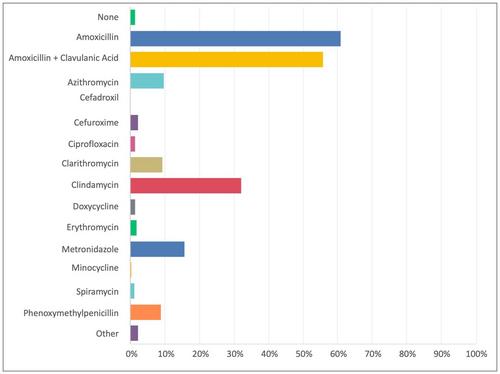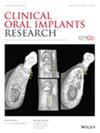Patterns of antibiotic prescription in implant dentistry and antibiotic resistance awareness among European dentists: A questionnaire-based study
Abstract
Objectives
Antimicrobial resistance is an alarming global public health concern, threatening the effective treatment of common infections. This phenomenon is driven by the improper prescription of antibiotics. This study aimed to elucidate the patterns of antibiotic prescription in implant dentistry among European dentists and their awareness of antibiotic resistance.
Materials and Methods
An anonymous online validated questionnaire was distributed via e-mail to 6431 recipients through the European Association for Osseointegration. It comprised of 17 structured questions investigating demographic variables, working environment, clinical experience, attitude towards antibiotic prescription in particular in relation to implant dentistry and COVID-19 pandemic, and awareness of antibiotic resistance. Data were collected from April to May 2023.
Results
281 dentists from 33 European countries completed the survey. Almost 80% affirmed to routinely prescribe antibiotics as prophylaxis as well as after dental implant placement, especially in medically compromised patients or in cases of bone grafting. Amoxicillin, alone (61%) or in combination with clavulanic acid (56%), was the most common antibiotic of choice. Awareness of penicillin resistance among respondents was high. For peri-implantitis treatment, more than half reported the use of systemic antibiotics. The large majority (95%) did not prescribe more antibiotics since the beginning of COVID-19 pandemic. Less than 40% declared to follow national guidelines for antibiotic prescription.
Conclusion
This survey revealed a high prescription rate of antibiotics in implant dentistry, despite the awareness about antibiotic resistance among the respondents. The development and adherence to European guidelines has been identified as a potential strategy for improving antimicrobial stewardship.


 求助内容:
求助内容: 应助结果提醒方式:
应助结果提醒方式:


